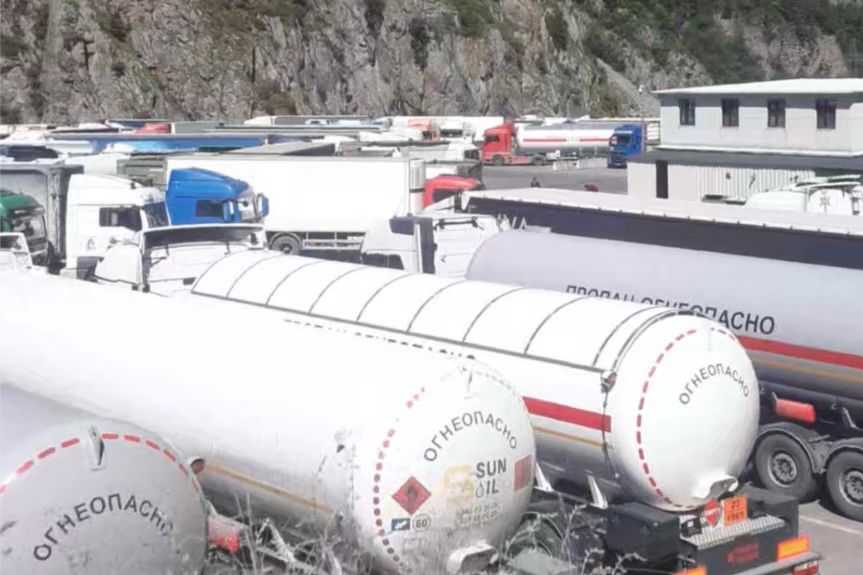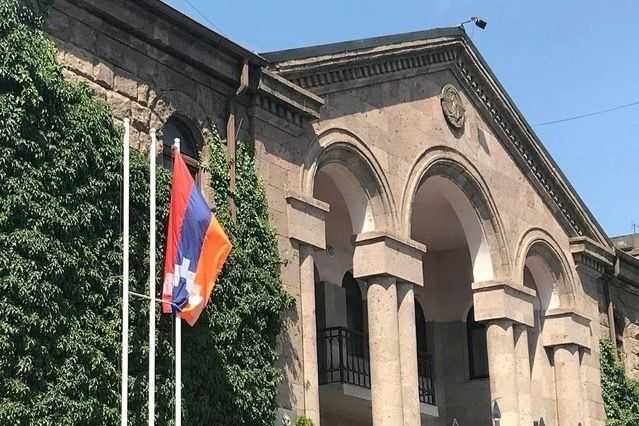
Officials from Nagorno-Karabakh and Azerbaijan have met to discuss the Lachin Corridor’s closure and the region’s energy crisis a day after the dismissal of State Minister Ruben Vardanyan.
The authorities in Stepanakert confirmed earlier media reports about the meeting on Saturday.
According to Stepanakert, Nagorno-Karabakh’s and Azerbaijan’s representatives discussed the blockade of the Lachin Corridor and the disruptions to the region’s energy supplies.
Baku has yet to confirm taking part in the meeting.
Aramayis Aghabekyan, an MP from the ruling Free Motherland party, told RFE/RL that the meeting was not ‘unprecedented’ and was purely technical and devoid of ‘political context’.
This marks the first time Stepanakert and Baku have held talks since the blockade of Nagorno-Karabakh started in December last year, taking place only a day after President Arayik Harutyunyan dismissed State Minister Ruben Vardanyan.
[Read more: Ruben Vardanyan sacked as state minister of Nagorno-Karabakh]
A few days before his dismissal, Azerbaijani President Ilham Aliyev said that Baku was ready to negotiate with Stepanakert — but not with Vardanyan.
Tigran Grigoryan, a Yerevan-based political analyst, said Aliyev’s statements, and others made by Baku about Vardanyan, were directly connected to his dismissal.
‘There was not only one reason [to fire Vardanyan], but a set of reasons’, Grigoyan told OC Media, adding that internal pressure also contributed to the decision due to ‘domestic and political turmoil, relations with Yerevan, and disagreements with Vardanyan’s management strategies’.
An energy crisis amid an ongoing blockade
The Lachin Corridor, the only road connecting Nagorno-Karabakh with Armenia and the outside world, has been closed since 12 December.
[Read more on OC Media: Nagorno-Karabakh enters third month of blockade]
The region has since struggled to address a food and energy shortfall, resorting to rationing and rolling blackouts.
President Harutyunyan stated last week that the water reserves in the Sarsang Reservoir were declining sharply as they needed to allocate more water for the operation of the region’s primary hydropower plant.
Grigoryan said the talks between Armenians and Azerbaijanis would likely exclusively centre around the region’s energy supplies.
He suggested that the end of the blockade was contingent on whether Armenia agreed to establish Azerbaijani checkpoints on the Lachin Corridor — a demand that Yerevan vehemently opposes.
As a compromise, Grigoryan said Azerbaijan had proposed that Russian peacekeepers install vehicle scanners along the corridor.
He added that Yerevan would likely agree to the proposal, despite it being ‘in violation of the 9 November agreement’ — the ceasefire agreement that ended the Second Nagorno-Karabakh War.
The agreement stipulated that the road would be manned by Russian peacekeepers and that Azerbaijan ‘shall guarantee the security of persons, vehicles, and cargo moving along the Lachin Corridor in both directions’.
For ease of reading, we choose not to use qualifiers such as ‘de facto’, ‘unrecognised’, or ‘partially recognised’ when discussing institutions or political positions within Abkhazia, Nagorno-Karabakh, and South Ossetia. This does not imply a position on their status.






